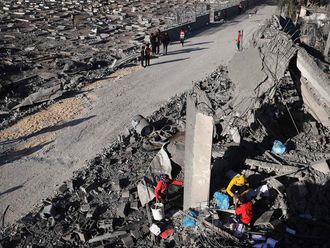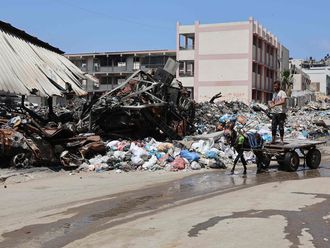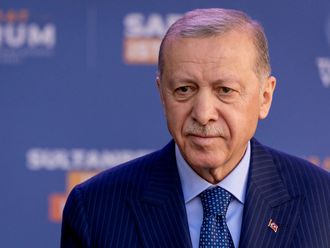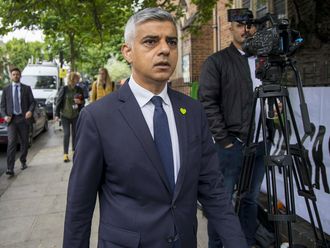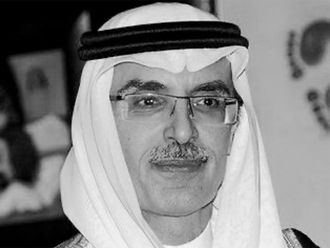Geneva - A UN humanitarian aid official said Thursday that Syria’s government has withdrawn a controversial law that allowed authorities to seize property left behind by civilians who fled the country’s civil war, calling it a good sign that “diplomacy can win - even in Syria.”
Jan Egeland said he was told of the decision by Russia, a key ally of Bashar Al Assad.
Egeland also said the regime has agreed to allow convoys of aid to enter the desolate Rukban area near Syria’s border with Jordan. He said the UN and its partners haven’t gotten access since January to the area where up to 50,000 civilians have been stuck for months, calling it one of Syria’s most “desperate places.”
Egeland, who heads aid issues in the office of UN Syria envoy Staffan de Mistura, but whose day job is leading the Norwegian Refugee Council, also confirmed he will leave the U.N. post in November. He spoke a day after de Mistura told the UN Security Council that he himself is leaving for “personal” reasons.
Speaking after a UN “humanitarian task force” meeting in Geneva, Egeland said Russia reiterated assurances it had made earlier regarding Syria’s so-called “Law 10” having been withdrawn. Under the law, residents have just 30 days to prove that they own property in redevelopment zones in order to receive shares in the projects, otherwise the ownership will be transferred to the local government.
The law has been seen as a major impediment to the possible return of millions of Syrian refugees and internally displaced people who fled their homes in Syria’s 7-year war, which has left at least 400,000 people dead. Syrian officials have insisted the law will not result in the confiscation of property, but is aimed at proving and organising ownership to combat alleged forgery of documents in rebel-held areas.
It was not clear whether the regime might later revive the legislation or enact it in other ways.
“When Russia says that it is withdrawn and there were mistakes done ... it is some good news,” Egeland said. “Hopefully this will now be reality on the ground. So diplomacy can win - even in Syria.”
Syrian legislator Mohammad Kheir Akkam told The Associated Press on Thursday that the law was issued by presidential decree and there has been no decree to abolish it.
“These claims are not true so far,” he said when asked whether “Law 10” has been abolished.
There was no immediate reaction or confirmation from either Russia or the Syrian regime regarding the law.


